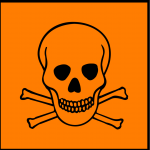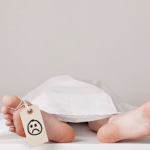K2, a dangerous synthetic cannabinoid product – also known as spice, synthetic marijuana, legal weed or fake weed – is wreaking havoc in Illinois and hospitalizing dozens.
In Illinois, synthetic cannabinoids have killed two and hospitalized fifty-six for extreme bleeding. This toll is expected to rise. Believing they are like "pot" or "marijuana" is the public's first mistake.
death
The weekly report from the Centers for Disease Control and Prevention on the dead and dying is morbidly fascinating. In both men and women, heart disease and cancer are #1 and #2 killers, respectively. However, everything changes after that.
We all have to die. Those of us who process that reality ahead of time might be lucky enough to have a small say over the time and location of our unavoidable demise. And in the process, we may help society as a whole come to terms with death. That is why we applaud the increase in deaths that are occurring at hospices.
Why would someone want to expose themself to serious injury or death just for a few thrill-inducing minutes jumping off a bridge and bouncing around uncontrollably? Yes, we've all heard the catch-all justification: "It's exhilarating -- and it makes me feel alive." Here's a closer look at the health consequences of this edge-of the-envelope activity. On its face it seems quite risky, but how risky is it? Maybe not as much as you think.
What happens when we die? This question is both existential and biological. While scientists cannot address the first, they certainly can address the second. What happens to your body after you die is not pretty. Alas, there is no such thing as death with dignity when the microbial Grim Reaper arrives.
A Phase I clinical trial in France resulted in one death and hospitalization of five other study participants, three of which have irreversible brain damage. Prosecutors there are beginning a manslaughter investigation which will threaten the stability of any future drug trial.
Can you die of a broken heart? A new report says maybe so. Among a group of people who had recently lost a loved one, cardiovascular events increased significantly over the following month.


